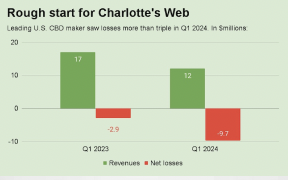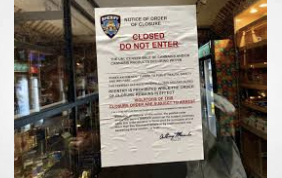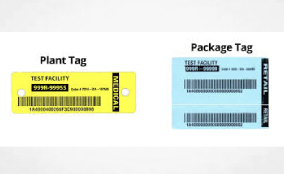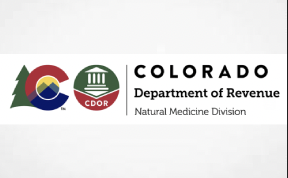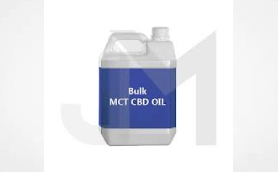Ahh sounds just like the Rwanda policy.
Where to start — where to start ?
HempToday
Implementation of legal and regulatory frameworks in the UK’s $850 million (£690 million/€798 million) CBD market is in disarray, a key stakeholder group alleges in a new white paper.
The Association for the Cannabinoid Industry (ACI) said the process for getting CBD products into the marketplace through the Food Standards Agency (FSA) has been “protracted, punctuated by U-turns and . . . undertaken without any discernible coordination between the responsible authorities.”
ACI called on officials to clear up “existing ambiguities” and act quickly to implement specific provisions into the law by April 2024.
‘Approved daily intake’
First, the paper addresses “approved daily intake” (ADI) of CBD in light of controversial updated regulations issued in October by the Advisory Council on The Misuse of Drugs (ACMD). The Council ruled that based on the average lifetime exposure to food products containing CBD, healthy adults should limit their consumption of CBD in food or beverages to 10 milligrams per day – the equivalent of four or five drops of a 5% CBD oil.
Some industry representatives have suggested that an average dose of CBD needed to have a well-being or medical effect is between 60 and 120mg daily, noting that the approved medical-grade CBD product Epidiolex is administered to children at even higher levels.
The European Industrial Hemp Association (EIHA) has proposed a daily CBD dosage of 17.5mg to the European Food Safety Authority.
In the UK, the much lower ACMD recommendation was made in light of guidance from key government committees, which observed that long-term use of CBD brings potential risk of liver damage or thyroid issues.
Threat to market
Stakeholders have said the 10-milligram limit could deal a severe blow to the whole of the UK CBD industry, lead to confusion among consumers, and sap investor confidence.
Whatever the limit, the Home Office should obtain ministerial approval to implement approved daily intake for CBD as soon as possible, ACI said.
“The ACI recommends that further data underpinning consumption recommendations be evaluated urgently and regular updates regarding ADI to be published online even if this is to reiterate the current precautionary advice to the consumer of up to 10 milligrams per day for long-term use still applies,” according to the white paper.
FSA’s Advisory Committee on Novel Foods and Committee on Toxicity of Chemicals in Food, Consumer Products and the Environment “should evaluate further data underpinning the new provisional ADI for CBD with a view to potential revision of the precautionary advice,” ACI said.
Max THC levels
In another key development, the Home Office in late October accepted the recommendation of the ACMD that legislation be updated so that CBD ingestibles can legally contain up to 50 micrograms of controlled cannabinoids (including THC) per unit of consumption or serving.
While ACI called 50 micrograms “a justifiable recommendation,” the association said the Home Office should relate that limit to a maximum total daily intake for controlled cannabinoids, as opposed to per serving or per unit of consumption.
Read more
Trade group says implementation of CBD policy in UK’s $850 million market is off the rails

